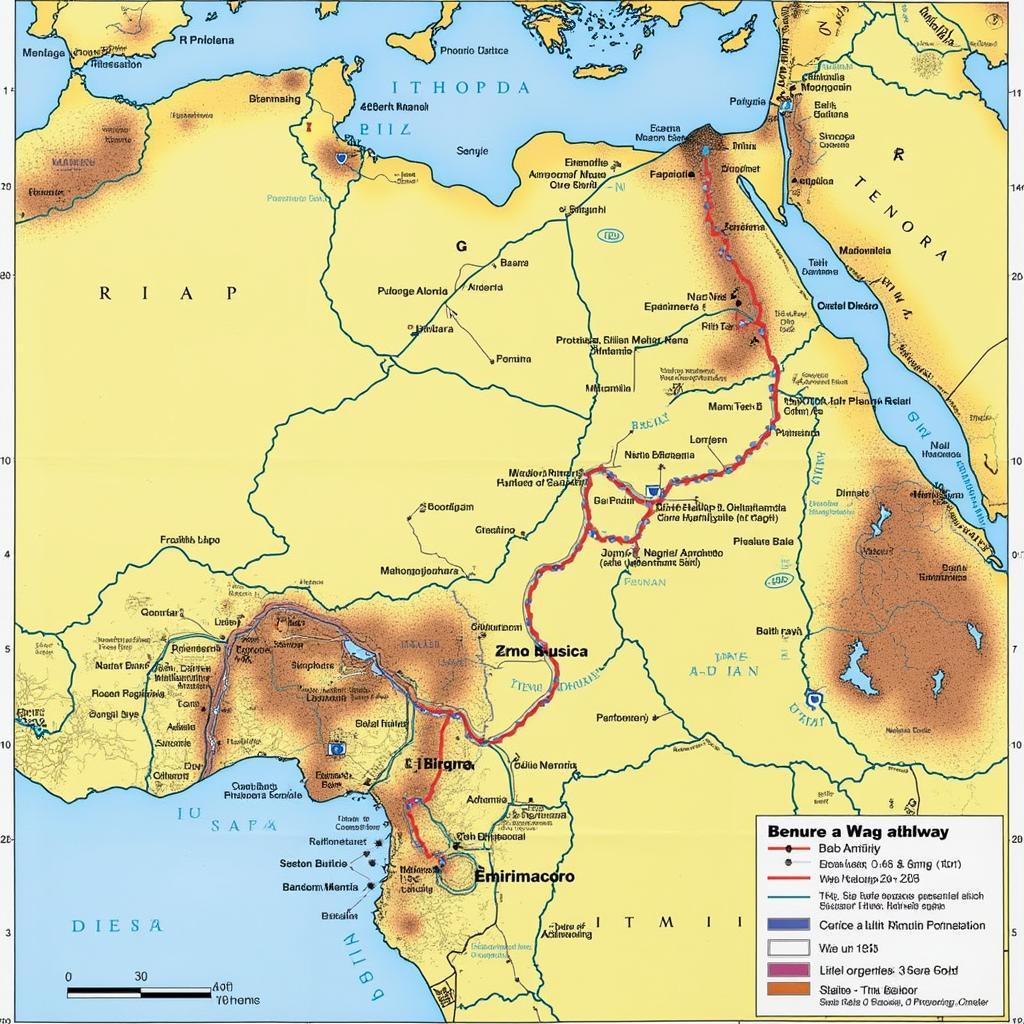Adwa: The Victory of African Resistance
The Battle of Adwa, fought on March 1, 1896, stands as a beacon of African resistance against European colonialism. This decisive victory against Italian forces seeking to subjugate Ethiopia resonated throughout the African continent and beyond, becoming a powerful symbol of African unity, strength, and the fight for self-determination.
Why Was Adwa So Significant?
The significance of Adwa lies not only in its military outcome but also in its profound impact on the global perception of Africa and its people. Let’s delve into the key reasons why Adwa continues to hold a revered place in history:
-
A Blow Against Colonial Expansion: Adwa represented one of the most significant defeats inflicted on a European colonial power by an African force in the late 19th century. It shattered the myth of European invincibility and challenged the prevailing narrative of European superiority that fueled colonial expansion.
-
Preserving Ethiopian Sovereignty: The victory ensured Ethiopia’s survival as an independent nation, making it the only African country to successfully resist European colonization during the Scramble for Africa. This resonated deeply with other African nations facing the brutal realities of colonial rule.
-
Unifying a Continent: The triumph at Adwa transcended geographical boundaries, galvanizing anti-colonial movements across Africa. It served as a source of inspiration and hope for those struggling for liberation and self-governance, demonstrating that resistance, even against seemingly insurmountable odds, was possible.
Understanding the Battle: A Clash of Ambitions
To truly grasp the magnitude of Adwa’s importance, we need to understand the events that led to this historical clash:
-
Italian Ambitions: Italy, a latecomer to the colonial race, sought to establish a vast empire in East Africa. Their ambitions focused on Ethiopia, a strategically important and resource-rich nation.
-
Treaty of Wuchale: A treaty signed in 1889 between Italy and Ethiopia became a point of contention. A mistranslation created a discrepancy, with the Italian version making Ethiopia an Italian protectorate, a claim Emperor Menelik II vehemently rejected.
-
Ethiopian Resistance: Emperor Menelik II rallied his nation, strategically forging alliances and modernizing his army. When diplomatic efforts failed, Ethiopia declared war on Italy in 1895.
 Map depicting the Battle of Adwa strategy
Map depicting the Battle of Adwa strategy
The Legacy of Adwa: Echoes of Resistance
The victory at Adwa continues to resonate in the 21st century, serving as a powerful reminder of:
-
Pan-Africanism and Solidarity: Adwa remains a potent symbol of African unity and shared struggle against oppression. It ignited the flame of Pan-Africanism, inspiring future generations to strive for a united and liberated Africa.
-
Challenging Historical Narratives: The battle compels us to confront Eurocentric narratives of history and acknowledge the courage and resilience of those who resisted colonialism.
-
Inspiration for Contemporary Struggles: Adwa’s legacy extends to ongoing struggles for social justice and equality worldwide. It serves as a timeless reminder that ordinary people, united by a common purpose, can overcome seemingly insurmountable challenges.
FAQs About the Battle of Adwa:
- What were the key factors that led to Ethiopia’s victory at Adwa? Ethiopian victory can be attributed to a combination of factors, including Emperor Menelik II’s leadership, strategic alliances, knowledge of the terrain, the bravery of Ethiopian soldiers, and Italian logistical and strategic errors.
- How did the Battle of Adwa impact Italy’s colonial ambitions? Adwa marked a significant setback for Italy’s colonial aspirations in East Africa. They were forced to recognize Ethiopia’s independence and never achieved their goal of a vast East African empire.
- How is Adwa commemorated today? Adwa is commemorated annually on March 1st in Ethiopia as a national holiday. The victory is also celebrated across the African continent and within the global African diaspora.
For support contact Phone Number: +255768904061, Email: kaka.mag@gmail.com Or visit: Mbarali DC Mawindi, Kangaga, Tanzania. We have a 24/7 customer care team.

